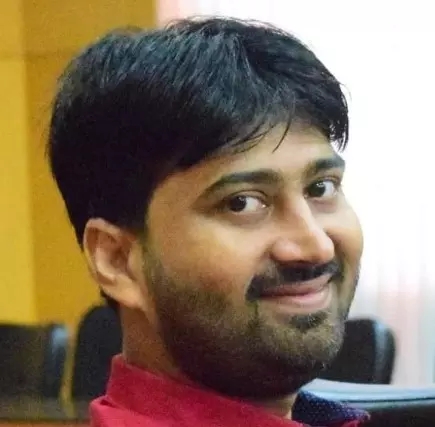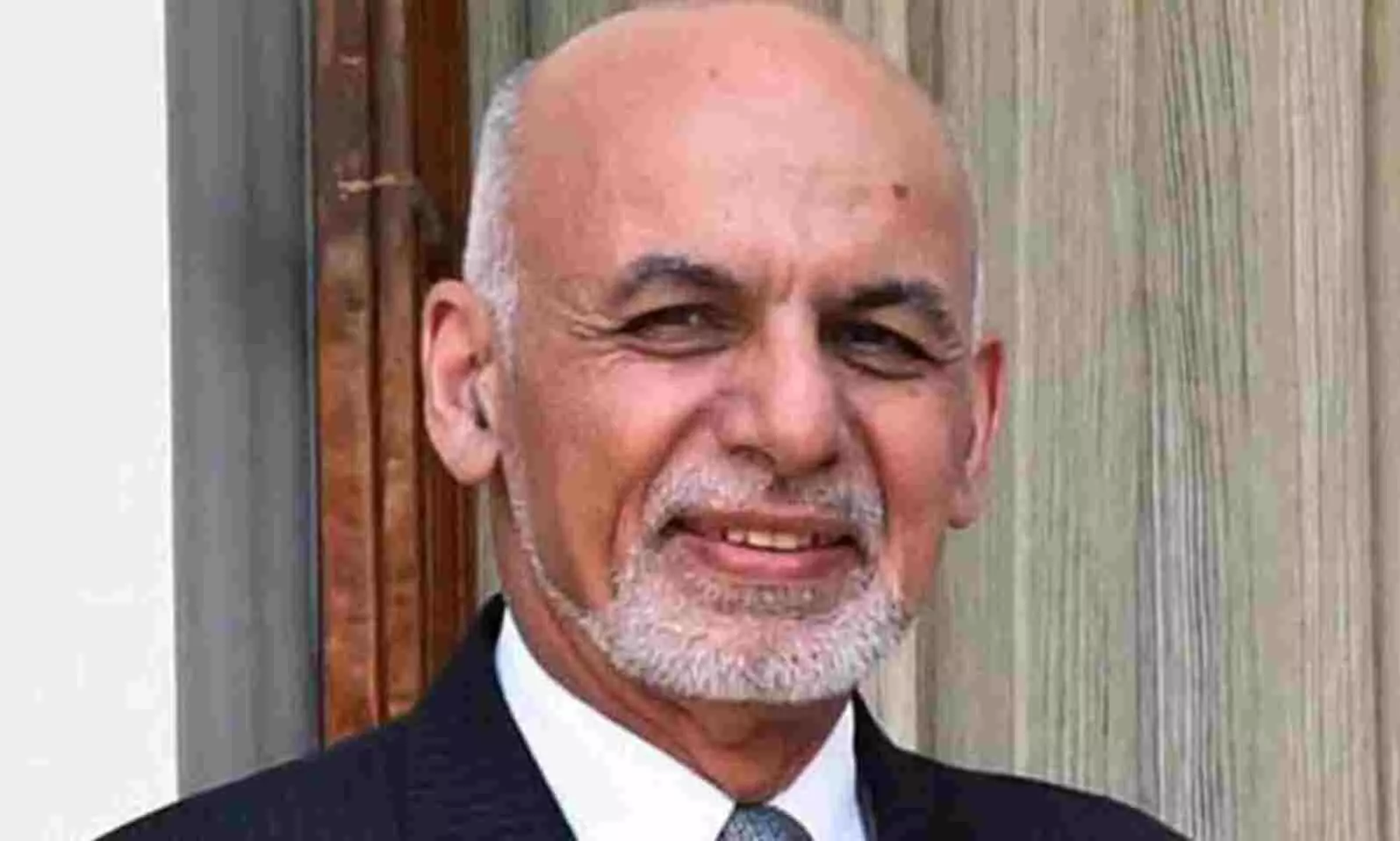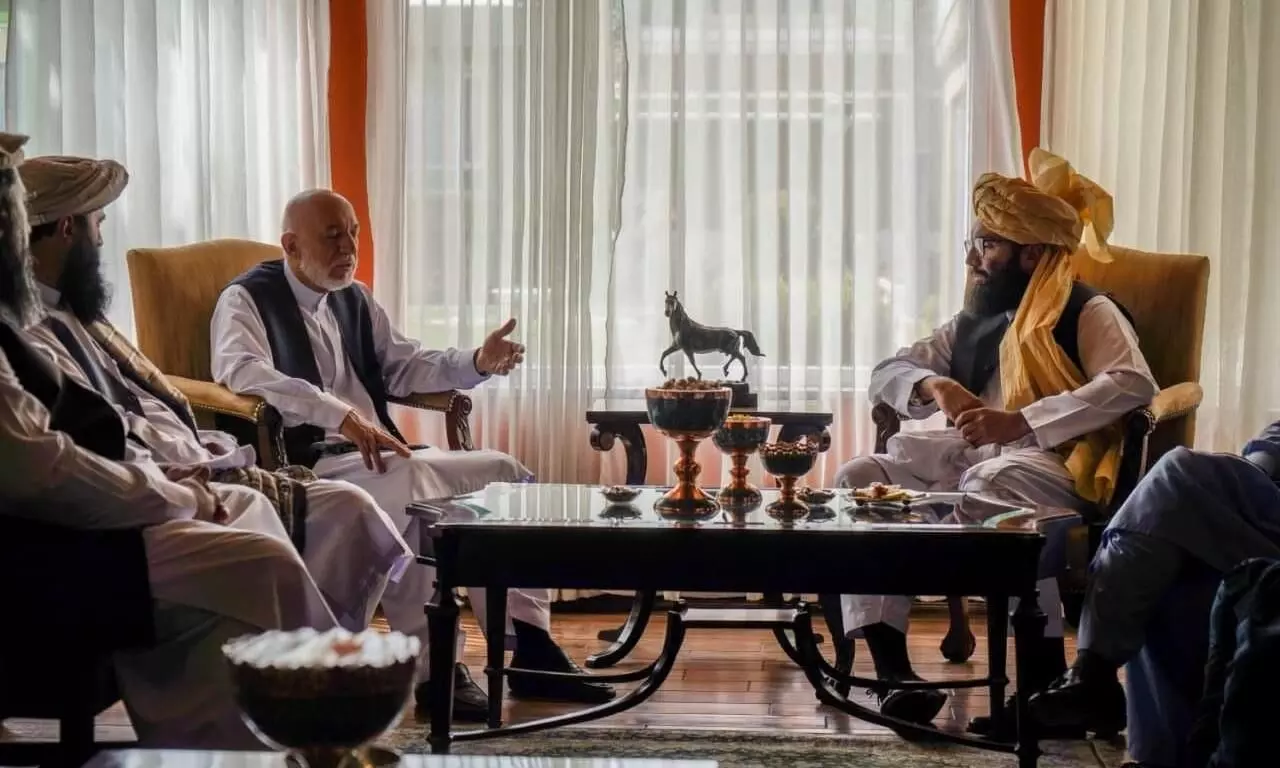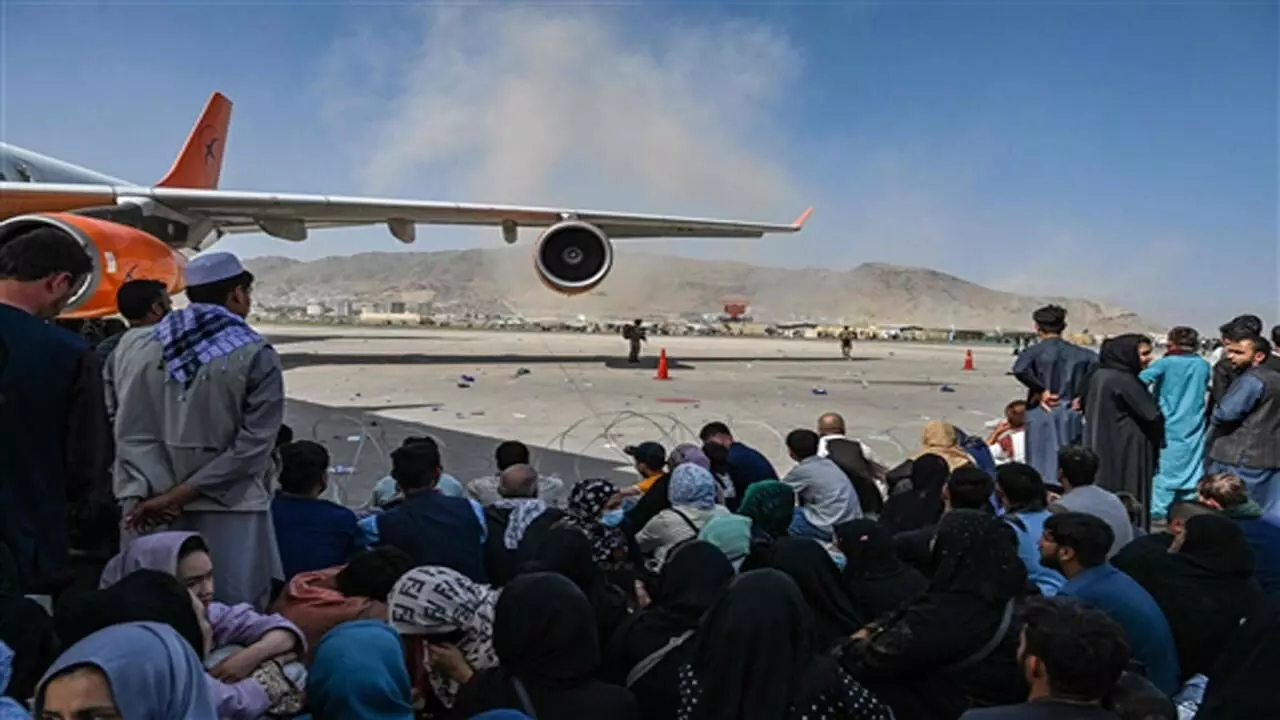
Who is responsible for the Afghan impasse?
text_fieldsUS President Joe Biden, Afghan President Ashraf Ghani and Chairman of Afghanistan's High Council for National Reconciliation Abdullah Abdullah at the White House in Washington, June 25, 2021. (Photo credit: Reuters)
On August 19, Afghanistan celebrates its Independence Day to mark the 1919 victory of King Amanullah Khan in the Third Anglo-Afghan War. In 2019, I was in Kabul when President Ashraf Ghani celebrated centenary Independence Day with much pomp and glory in the newly renovated Darul Aman Palace in the capital.
Independence Day this year is expected to be very somber as President Ghani fled from the country unexpectedly on the morning of Sunday, August 15 and Afghanistan is almost entirely under the control of the Taliban once again though they are yet to take over the charges formally.
Taliban, which calls itself the Islamic Emirate of Afghanistan, had ruled the country from the middle of the 1990s till 2001-end when the NATO forces, led by the USA, invaded Afghanistan after 9/11. A new government was installed in Kabul after the Bonn Conference under Hamid Karzai who later became the President after the 2004 elections (and had the second term winning 2009 elections).
For a brief period, it seemed that stability and prosperity would come to Afghanistan as the Taliban was declared a terrorist group by the United Nations, was banned and found itself retreated in the mountains across Afghanistan-Pakistan borders while many senior leaders hid in Pakistan.
But indiscriminate arrests through night raids, target killings, and bombing village gatherings and congregations, often mistaking wedding, mourning, or religious gatherings fora hurdle of suspected terrorists made the USA, Afghan government, and their special forces extremely unpopular, particularly in Pashtun dominated rural areas. That allowed the Taliban to regroup and emerge as a critical insurgency group.
After 9/11, Parvez Musharraf reluctantly supported the US invasion, but soon Pakistan found themselves on the margins of Afghanistan's politics which they otherwise view as 'strategic depth', particularly against India. They hence did not shy away from covertly supporting Taliban too, particularly through the Inter-Service Intelligence (ISI). Soon Taliban established a parallel government in most of the eastern and southern provinces bordering Pakistan and Iran, particularly in rural areas and began targeting government installations, senior politicians as well as journalists and civil society activists critical of them although often in blasts many innocent civilians died too.
What made the matter worse is that consecutive Afghan governments were plagued by massive corruption – Afghanistan ranks 165 out of 180 countries in the Transparency Index. Even as most Afghans remained poor, ministers, governors as well as top bureaucrats and former warlords lived very luxurious lives on high payouts.
While the Karzai family was also accused of siphoning millions of dollars, he was seen as more accommodating towards regional and tribal leaders. Ghani, on the other hand, relied too much on his small circle of Western-educated technocrats to run the government thus sidelining many regional and political leaders. Afghanistan remains an ethnically divided society and he was accused by his detractors of aggravating those fault lines rather than forging alliances.
The continuing presence of the US army in Afghanistan was becoming extremely unpopular both domestically and in Afghanistan, forcing them to initiate peace talks by helping establish the Taliban's political office in Doha, Qatar. These peace talks did not yield much result till President Donald Trump set deadlines for the withdrawal and appointed Zalmay Khalilzad, an Afghan-American diplomat, as the Special Representative for Afghanistan Reconciliation. Finally, the Doha Accord was signed in February 2020 between the United States and the Taliban to facilitate their withdrawal and simultaneous beginning of intra-Afghan talks.
Meanwhile, political elites in Kabul got entangled in the fraudulent Presidential election of 2019 delaying the announcement of results for months, and then simultaneous swearing-in ceremonies of two Presidents in Kabul – Ghani who won the second term, and Dr Abdullah Abdullah who said that Ghani had won through frauds.
Months later a deal was struck between them under US pressure appointing Dr Abdullah as the Chairman of the High Council for National Reconciliation to lead the peace talks. Even as the deadline of withdrawal neared, the government took months to finalize the list of negotiators due to internal differences.
The few rounds of talks that were held yielded little result except "agreement" to continue the negotiations. One of the main sticking points between the two sides have been on the nature of the government, even as Kabul insisted on continuing as a Republic, the Taliban maintained all along that they will not accept anything less than an "Islamic Emirate" where the Constitution and laws will be determined based on the principles of Sharia.
It has now become increasingly clear that there were also ego clashes and arrogance that stalled the peace talks. Kabul-based elites and Ghani's coterie of technocrats, educated among the best universities in the West looked down upon Taliban as wretched, rural, and conservative mullahs who act as proxy of Pakistan. On the other hand, the war-hardened Taliban have learned the tricks of diplomacy, bargaining and most importantly optimum use of international media as well as social media while remaining strong in their belief and commitment to what they see as righteous cause.
Forming a transition government to facilitate the Taliban's accommodation in the system has been on the table for years now as I heard its murmurs in 2019 in Kabul as well, but Ghani was not ready to relinquish power which stalled peace talks for months. Even as the Taliban began capturing provincial capitals one after another swiftly, Ghani and his first Vice President Amarullah Saleh opposed the formation of any transition government till as late as Saturday, a day before he fled.
Ghani who was once hailed as an intellectual best suited to solve the Afghan crisis, since he has also authored the book titled Fixing Failed States: A Framework for Rebuilding a Fractured World, has become one of the most hated figures in the past two weeks.
There were hectic backchannel talks for an interim government for six months for smooth transfer of power and accommodation of different groups in the last week as well, but instead by fleeing the country secretly Ghani not only created a power vacuum but also threw Afghanistan into a bigger crisis making even his ardent supporters question his intention: "He lied and lied, and then fled like a coward, leaving an entire nation behind, in horrifying state. History will remember," tweeted a former Wall Street journalist.
What has surprised many is how government institutions and Afghan forces lost their morale and collapsed within days of the withdrawal of the US forces. There are also several instances of local tribal leaders and politicians switching sides after backchannel negotiations involving elders of the community pointing to the complex nature of the Afghan politics.
The United States will commemorate the twentieth anniversary of 9/11 in less than a month. After spending trillions of dollars and the loss of thousands of NATO and Afghan soldiers, the US has left Afghanistan more embarrassingly than the USSR did in 1989, and the Taliban are back more powerful than they were, but in an apparent new avatar.
US President Joe Biden and Khalilzad have rightly been severely criticized for the manner of the withdrawal, but Kabul's elites need to share the blame as much for the impasse.
(Mohamamd Reyaz is an assistant professor at Aliah University, Kolkata, and has been closely watching Afghanistan for a decade now. He tweets at @journalistreyaz)



























